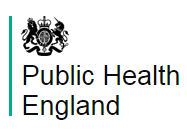预约演示
更新于:2025-06-13

Public Health England
更新于:2025-06-13
概览
标签
感染
小分子化药
疾病领域得分
一眼洞穿机构专注的疾病领域
暂无数据
技术平台
公司药物应用最多的技术
暂无数据
靶点
公司最常开发的靶点
暂无数据
| 疾病领域 | 数量 |
|---|---|
| 感染 | 1 |
| 排名前五的药物类型 | 数量 |
|---|---|
| 小分子化药 | 1 |
| 排名前五的靶点 | 数量 |
|---|---|
| Bacterial DNA gyrase(细菌DNA旋转酶) | 1 |
关联
1
项与 Public Health England 相关的药物作用机制 Bacterial DNA gyrase 抑制剂 |
在研适应症 |
非在研适应症- |
最高研发阶段临床前 |
首次获批国家/地区- |
首次获批日期- |
98
项与 Public Health England 相关的临床试验NCT04735419
Development of a Serocorrelate of Protection Against Invasive Group B Streptococcus Disease
A multicentre study to provide evidence that the relationship between an immune marker value (anti-GBS IgG concentration) and the probability of invasive GBS (iGBS) disease in infants less than 90 days of age is sufficiently strong that a vaccine able to induce an immune response will lead to a meaningful decrease in the probability of iGBS disease.
开始日期2021-12-01 |
申办/合作机构 |
NCT04587050
Screening for Human Papillomavirus and Cervical Cancer in Young Women With Perinatally Acquired HIV
This is a cross-sectional, observational study of high-risk HPV status, cervical cytology and HPV vaccine uptake and response in young women with perinatally acquired HIV.
开始日期2021-07-19 |
申办/合作机构 |
NCT05993260
Using Text Messages to Boost COVID-19 Vaccination Appointment Booking and Vaccination Rates: A Randomised Controlled Field Trial.
This study is a nationwide randomised controlled trial (RCT) to test the impact of behavioural science-informed text messages notifying patients of their eligibility for the COVID-19 vaccine on vaccination rates.
开始日期2021-04-26 |
申办/合作机构 |
100 项与 Public Health England 相关的临床结果
登录后查看更多信息
0 项与 Public Health England 相关的专利(医药)
登录后查看更多信息
1,896
项与 Public Health England 相关的文献(医药)2024-04-01·Journal of clinical virology : the official publication of the Pan American Society for Clinical Virology
Enrichment of SARS-CoV-2 sequence from nasopharyngeal swabs whilst identifying the nasal microbiome
Article
作者: Petrovec, Miroslav ; Openshaw, Peter J M ; MacGill, Tracy ; AlJabr, Waleed ; Prince, Tessa ; Orr, Robert ; Penrice-Randal, Rebekah ; Randle, Nadine ; Semple, Malcolm G ; Dong, Xiaofeng ; Suljič, Alen ; Hiscox, Julian A ; Myers, Todd ; Zakotnik, Samo ; Alrezaihi, Abdulrahman ; Avšič-Županc, Tatjana ; Korva, Miša
Simultaneously characterising the genomic information of coronaviruses and the underlying nasal microbiome from a single clinical sample would help characterise infection and disease. Metatranscriptomic approaches can be used to sequence SARS-CoV-2 (and other coronaviruses) and identify mRNAs associated with active transcription in the nasal microbiome. However, given the large sequence background, unenriched metatranscriptomic approaches often do not sequence SARS-CoV-2 to sufficient read and coverage depth to obtain a consensus genome, especially with moderate and low viral loads from clinical samples. In this study, various enrichment methods were assessed to detect SARS-CoV-2, identify lineages and define the nasal microbiome. The methods were underpinned by Oxford Nanopore long-read sequencing and variations of sequence independent single primer amplification (SISPA). The utility of the method(s) was also validated on samples from patients infected seasonal coronaviruses. The feasibility of profiling the nasal microbiome using these enrichment methods was explored. The findings shed light on the performance of different enrichment strategies and their applicability in characterising the composition of the nasal microbiome.
2024-04-01·BJGP open
General practice service use at the end-of-life before and during the COVID-19 pandemic: a population-based cohort study using primary care electronic health records
Article
作者: Higginson, Irene ; Harding, Richard ; Chukwusa, Emeka ; Gulliford, Martin ; Barclay, Stephen ; Verne, Julia
Background:
Globally, the COVID-19 pandemic has caused unprecedented strain in healthcare systems, but little is known about how it affected patients requiring palliative and end-of-life care from GPs.
Aim:
To evaluate the impact of the pandemic on primary care service use in the last 3 months of life, including consultations and prescribing, and to identify associated factors.
Design and setting:
A retrospective cohort study in UK, using data from the Clinical Practice Research Datalink.
Method:
The study cohort included those who died between 2019 and 2020. Poisson regression models using generalised estimation equations were used to examine the association between primary care use and patient characteristics. Adjusted rate ratios (aRRs) and 95% confidence intervals (95% CIs) were estimated.
Results:
A total of 44 534 patients died during the study period. The pandemic period was associated with an 8.9% increase in the rate of consultations from 966.4 to 1052.9 per 1000 person-months, and 14.3% longer telephone consultation duration (from 10.1 to 11.5 minutes), with a switch from face-to-face to telephone or video consultations. The prescription of end-of-life care medications increased by 6.3%, from 1313.7 to 1396.3 per 1000 person-months. The adjusted rate ratios for consultations (aRR = 1.08, 95% CI = 1.06 to 1.10,P<0.001) and prescriptions (aRR 1.05: 95% CI = 1.03 to 1.07,P<0.001) also increased during the pandemic.
Conclusion:
The pandemic had a major impact on GP service use, leading to longer consultations, shifts from face-to-face to telephone or video consultations, and increased prescriptions. GP workload-related issues must be addressed urgently to ease the pressure on GPs.
2024-02-17·Clinical infectious diseases : an official publication of the Infectious Diseases Society of America
Effects of BNT162b2 Messenger RNA Vaccine and ChAdOx1 Adenovirus Vector Vaccine on Deaths From COVID-19 in Adults Aged ≥70 Years
Article
作者: Ramsay, Mary ; Simmons, Ruth ; Andrews, Nick ; Stowe, Julia ; Lopez Bernal, Jamie ; Gower, Charlotte ; Tessier, Elise
Abstract:
We estimated the risk of death from coronavirus disease 2019 in vaccinated compared with unvaccinated patients. The risk of death was reduced 44% after 1 dose of the Pfizer-BioNTech BNT162b2 vaccine, 55% after 1 dose of the Oxford-Astrazeneca ChAdOx1 vaccine, and 69% after 2 doses of the BNT162b2 vaccine. This is above the protection provided against infection.
18
项与 Public Health England 相关的新闻(医药)2024-01-29
MANILA, Philippines, Jan. 29, 2024 /PRNewswire/ -- Consumer advocacy group Quit for Good asked the World Health Organization Framework Convention on Tobacco Control (WHO FCTC) to consider the lives of more than a billion smokers when it convenes the 10th Conference of the Parties in Panama next week.
Dr. Lorenzo Mata Jr., president of Quit for Good, said the WHO should implement FCTC Article 1 (d) on harm reduction strategies to help smokers. The treaty defines tobacco control as "a range of supply, demand and harm reduction strategies."
Continue Reading
"Consider the lives of more than a billion smokers" - Dr. Lorenzo Mata of QFG, Nancy Loucas of CAPRHA and Prof. Jay Jazul of HARAP
"Offering safer nicotine products to millions of adult smokers who want to reduce their exposure to toxic substances from smoke is common sense. This is what tobacco harm reduction (THR) is all about, which the WHO FCTC refuses to implement despite being part of the global treaty," Dr. Mata said.
Representatives from countries that are signatories to the WHO FCTC will meet in Panama for the 10th Conference of the Parties this year, after the meeting was cancelled in November 2023, to tackle major topics such as how to treat "novel and emerging tobacco and nicotine products".
The Coalition of Asia Pacific Tobacco Harm Reduction Advocates (CAPHRA) said blocking the use of products that can help save smokers' lives is against the mission of the WHO FCTC—a global treaty endorsed by most countries.
"People who smoke should have the right to access less harmful alternatives to smoking, and the WHO FCTC should focus on helping them. We need a pragmatic campaign to reduce the harm caused by smoking, rather than a dogmatic, deceptive, ineffective campaign to compel abstinence," CAPHRA executive coordinator Nancy Loucas said.
Loucas said the annual reviews of the Office for Health Improvement and Disparities, formerly Public Health England, have consistently shown that vaping carries a fraction of the risks of smoking. "Despite the overwhelming scientific evidence supporting vaping products as less harmful alternatives to smoking, the WHO has consistently disregarded the positive role that vaping can play in tobacco control," she said.
"It is time for the WHO FCTC and its member states to listen to the voice of the people that they are supposed to fight for and not against—the over 1 billion smokers whose lives are in danger if they continue to smoke," she said.
Prof. Jay Jazul, Lead Convener of the Harm Reduction Alliance of the Philippines (HARAP), said: "E-cigarettes do not threaten public health but provide smokers with an exit from smoking, which is the real problem. The WHO's failure to substantiate its claims against e-cigarettes and labeling these innovative products an emerging threat to public health is worrisome."
"The nicotine was not the problem, it was the delivery system that was the problem. We've known that for 50 years," said Professor David Sweanor of the University of Ottawa at a recent conference in Korea.
"The best example of how products that don't burn tobacco can benefit public health comes from Sweden, which has the lowest smoking prevalence among men in the European Union and consequently the lowest tobacco-related mortality," said Dr. Lars M. Ramström, the principal investigator at the Institute for Tobacco Studies. Dr. Ramström served as a WHO expert and as secretary general of the 4th World Conference on Smoking and Health.
"The meeting of the world's health leaders in Panama, the COP10, represents a unique opportunity to take a fresh look at the most recent evidence with an open mind. After all, if Sweden had followed WHO's advice from twenty years ago and banned snus, tobacco-related deaths in Sweden would have been much higher and the only unintended beneficiary profiting from such advice would be the cigarette industry," added Ramström.
Contact:
Jeimie Franco
+639175593170
[email protected]
SOURCE Quit For Good
2023-06-30
The "sister hospitals" affiliation deal closing July 1 comes with a $500 million-plus investment into Franciscan Children's facilities, inpatient and behavioral bed increases, increased staffing targets and a push toward fully integrated pediatric care.
Boston Children’s Hospital and nearby Franciscan Children’s are moving forward with an affiliation agreement that includes hundreds of millions in modernization investments and strengthened medically complex post-acute services for the region’s largest pediatric provider.
The organizations had signed and announced the agreement back in October 2021, but have now confirmed that the arrangement will close on July 1. The deal sees Franciscan Children’s retain its branding as a “sister hospital” to Boston Children’s, though it will now be under the umbrella of Boston Children’s parent organization, Children’s Medical Center Corp.
“We have a once-in-a-generation opportunity together to create a transformative new model of children’s behavioral and rehabilitative care, better serving the needs of our community and the children and families we serve,” Joseph Mitchell, M.D., president and CEO of Franciscan Children’s, said in the announcement. “We cannot wait to start this new chapter with our partners at Boston Children’s Hospital.”
Brighton, Massachusetts-based Franciscan Children’s is the only pediatric post-acute provider in New England, offering specialized rehabilitation and mental health services.
The organization had long collaborated with Boston Children’s on clinical coordination, preferred provider arrangements, staffing and advocacy. Their application for a Determination of Need to pursue the affiliation was approved by the Massachusetts Public Health Council in August 2022.
By joining forces, the providers said they will be able to take a more integrated approach to children’s health across inpatient, outpatient, primary care and school-based settings. They also plan to expand outpatient therapy and partial hospitalization programs, children’s mental health research, community- and school-based prevention programs.
In terms of concrete commitments, the deal will include a $500 million-plus investment in modernizing the Franciscan Children’s campus with, among other updates, “a new, state-of-the-art, net carbon-neutral building that will house the full continuum of care programs for medical rehabilitation and mental health services,” the organizations said.
The organizations also said they plan to hire 150 to 200 additional full-time employees by 2030, bump up training programs and build “a diverse employee pipeline from high school through medical school.”
Of note, demand for pediatric behavioral health services has escalated during the pandemic years. Researchers and organizations have sounded warnings on increased emergency care strain due in part to pediatric patients presenting with conditions such as attempted suicide, self-injury and depressive disorders.
“We are in the midst of a children’s mental health crisis, and it’s clear our system simply isn’t working for children and families,” Boston Children’s Hospital President and CEO Kevin Churchwell, M.D., said in a statement. “It’s why we are coming together as one team to act with the urgency this crisis demands. Together we will reshape children’s mental health and rehabilitative care through a fully integrated approach focused on improved prevention, identification and treatment of these diseases. And we’ll do it while breaking down barriers caused by systemic racism and ensuring that every child has access to care regardless of their race, ethnicity, gender or zip code.”
Eastern Massachusetts’ pediatric care market was upended in early 2022 with the shutdown of Tufts Medical Center’s inpatient services for children. At the time, patients and dozens of pediatric physicians were transferred to Boston Children’s.
With the affiliation, Boston Children’s and Franciscan Children’s said they will be increasing the number of beds available for pediatric inpatient services from 98 to 127 and nearly doubling their existing behavioral health bed capacity.
“This will reduce the number of kids forced to board in emergency rooms for medical and mental health needs,” they said in the announcement.
2021-11-05
The Company's test is available for sale through Clent Life Science, Co-Diagnostics' authorized distributor in the UK
Co-Diagnostics, Logix Smart COVID-19 2-Gene Test Approved for Use in UK. (Credit: Daniel Roberts from Pixabay)
Co-Diagnostics, Inc. (Nasdaq: CODX), a molecular diagnostics company with a unique, patented platform for the development of diagnostic tests, announced today that its Logix Smart™ SARS-CoV-2 2-Gene multiplex test has been validated according to the United Kingdom Health Security Agency’s (“UKHSA”) Medical Devices (Coronavirus Test Device Approvals) (Amendment) Regulations 2021 (“CTDA”) and is available for sale in the UK under the Regulation.
The UKHSA is the agency responsible for planning, preventing, and responding to external health threats, replacing Public Health England earlier this year. CTDA amends a previous regulation to require that SARS-CoV-2 test devices must be approved by the Secretary of State before they are placed on market or put into service, and specifies the performance requirements that such devices must meet. Co-Diagnostics’ test has completed the validation required by the CTDA and received approval to be sold according to the amended Regulation, and has been validated for use with several sample types, including saliva.
“We are pleased that our 2-gene multiplex SARS-CoV-2 test has been approved for sale according to the UK’s high standard of quality and performance,” remarked Dwight Egan, CEO of Co-Diagnostics. “Since the pandemic began, we have been on the forefront of providing gold-standard PCR solutions across the world, including Europe. We believe that each additional validation of our Company’s testing technology continues to demonstrate the quality of our patented CoPrimer™ platform, and the valuable role we have been fortunate enough to play in improving the quality of life for people affected by the pandemic through providing accurate, reliable, and cost-effective COVID-19 testing products.”
The Company’s test is available for sale through Clent Life Science, Co-Diagnostics’ authorized distributor in the UK.
Co-Diagnostics, Inc., a Utah corporation, is a molecular diagnostics company that develops, manufactures and markets a state-of-the-art diagnostics technology. The Company’s technology is utilized for tests that are designed using the detection and/or analysis of nucleic acid molecules (DNA or RNA).
The Company also uses its proprietary technology to design specific tests to locate genetic markers for use in industries other than infectious disease and license the use of those tests to specific customers.
Source: Company Press Release
100 项与 Public Health England 相关的药物交易
登录后查看更多信息
100 项与 Public Health England 相关的转化医学
登录后查看更多信息
组织架构
使用我们的机构树数据加速您的研究。
登录
或

管线布局
2026年02月28日管线快照
管线布局中药物为当前组织机构及其子机构作为药物机构进行统计,早期临床1期并入临床1期,临床1/2期并入临床2期,临床2/3期并入临床3期
临床前
1
4
其他
登录后查看更多信息
当前项目
药物交易
使用我们的药物交易数据加速您的研究。
登录
或

转化医学
使用我们的转化医学数据加速您的研究。
登录
或

营收
使用 Synapse 探索超过 36 万个组织的财务状况。
登录
或

科研基金(NIH)
访问超过 200 万项资助和基金信息,以提升您的研究之旅。
登录
或

投资
深入了解从初创企业到成熟企业的最新公司投资动态。
登录
或

融资
发掘融资趋势以验证和推进您的投资机会。
登录
或

生物医药百科问答
全新生物医药AI Agent 覆盖科研全链路,让突破性发现快人一步
立即开始免费试用!
智慧芽新药情报库是智慧芽专为生命科学人士构建的基于AI的创新药情报平台,助您全方位提升您的研发与决策效率。
立即开始数据试用!
智慧芽新药库数据也通过智慧芽数据服务平台,以API或者数据包形式对外开放,助您更加充分利用智慧芽新药情报信息。
生物序列数据库
生物药研发创新
免费使用
化学结构数据库
小分子化药研发创新
免费使用


